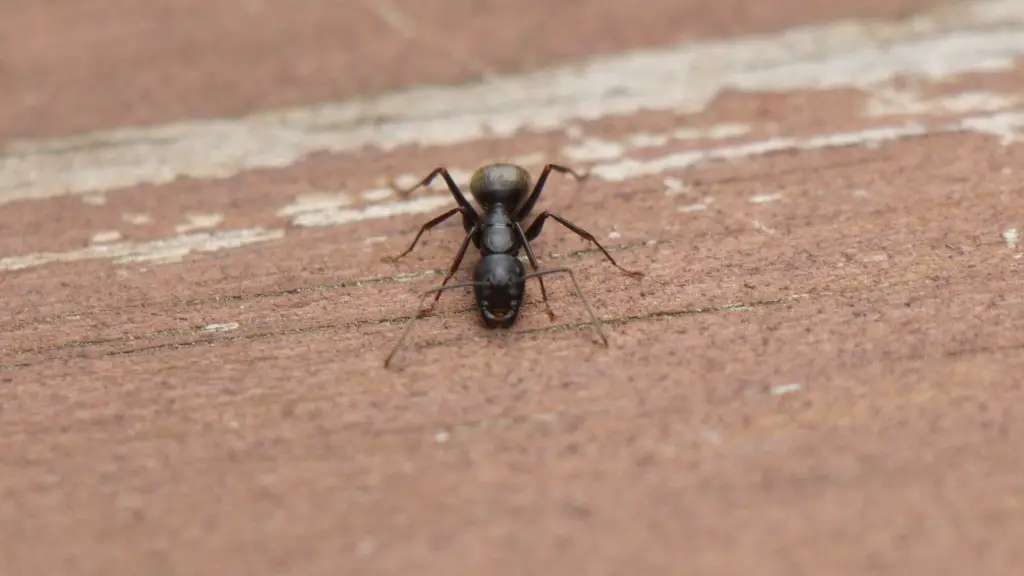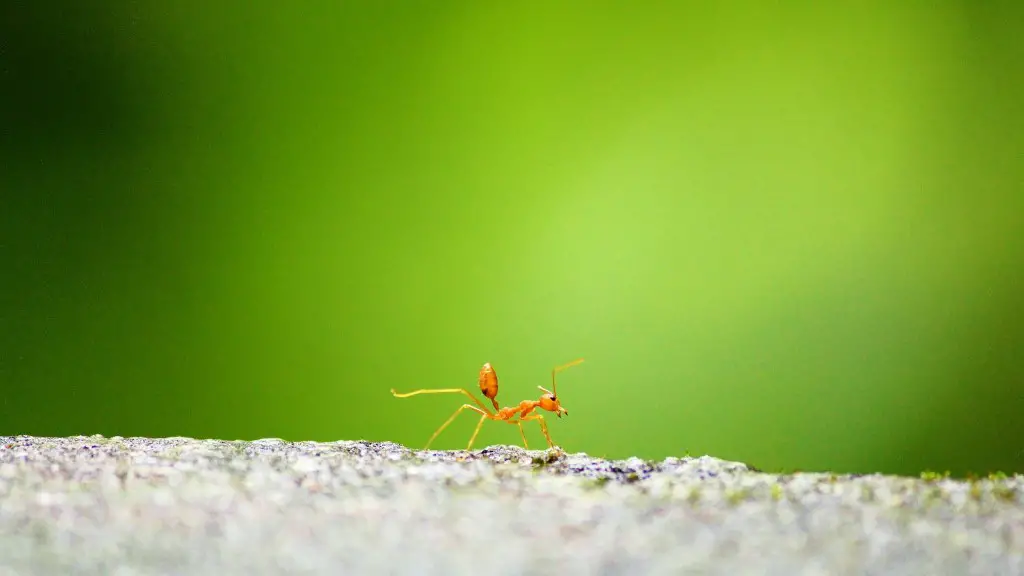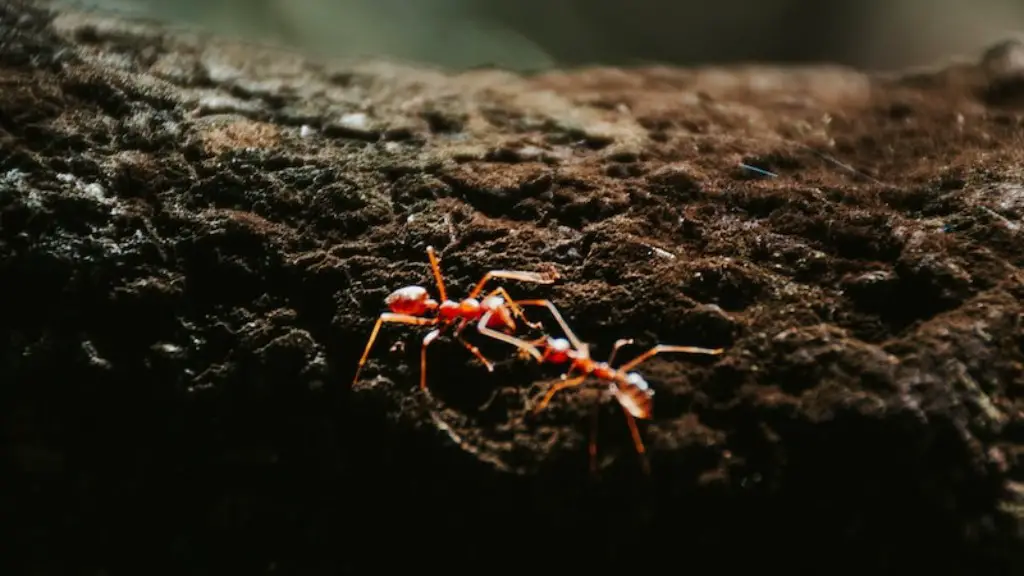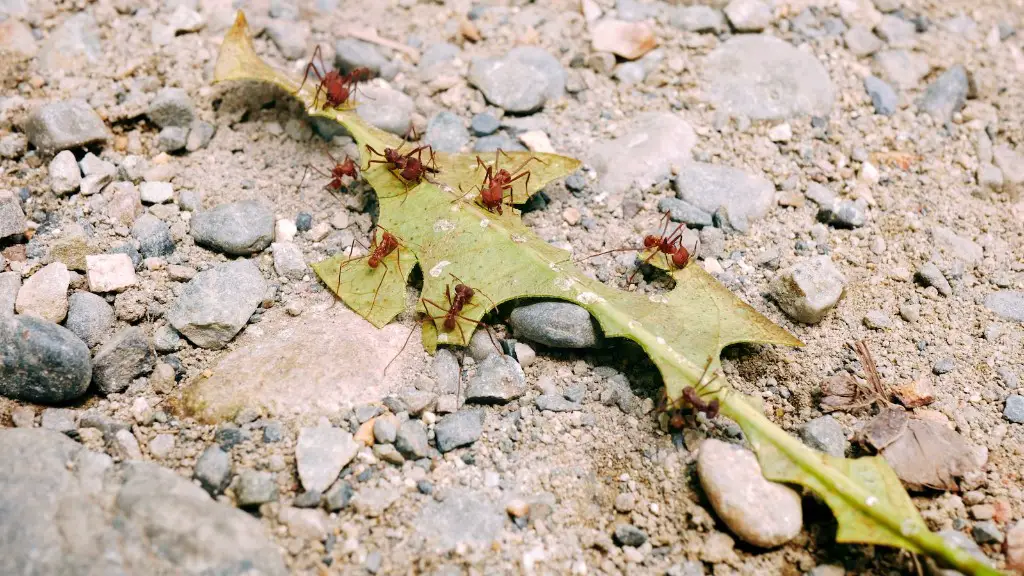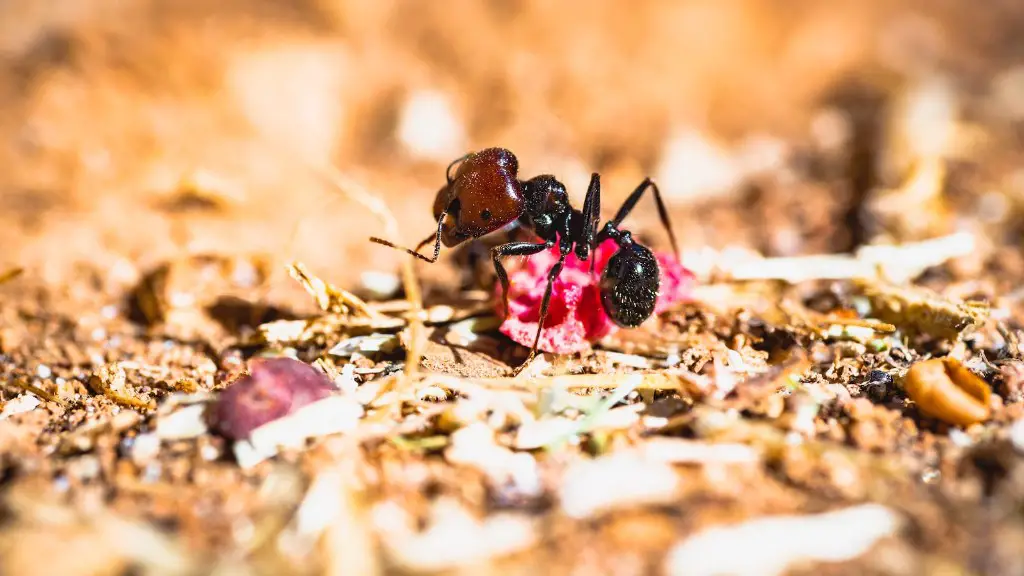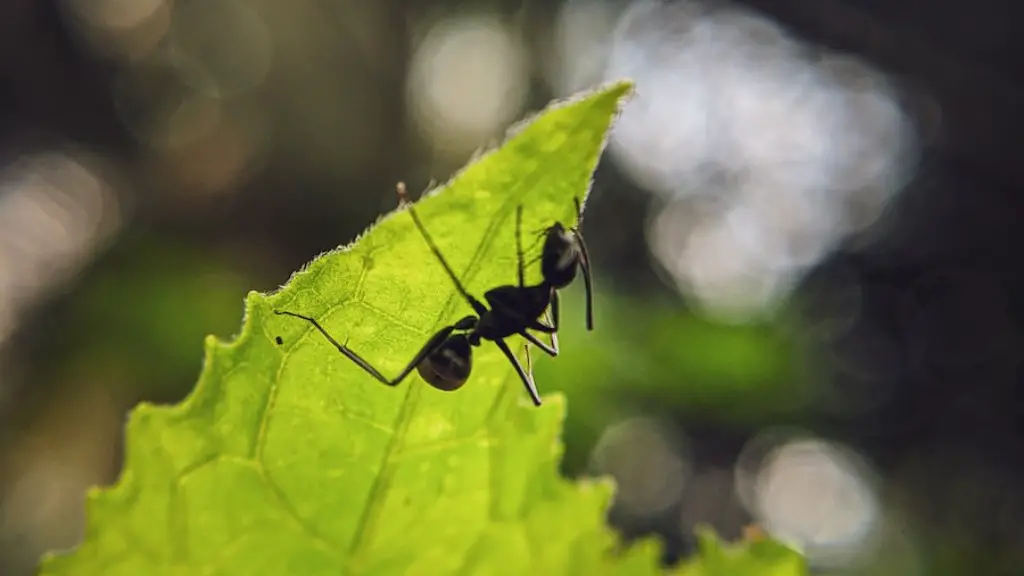Ants are among the most versatile and fascinating creatures in the animal kingdom, and like most creatures, their diets can vary depending on their habitat. But do ants like bananas?
Bananas are the fourth most eaten fruit in the world, so it makes sense that ants share a love for the yellow staple. Ants, like many other insects, are attracted to sweet things, and a ripe banana certainly fits that description. The nutrients a banana contains are also quite attractive to ants.
But this doesn’t mean that all ants love bananas. There are many different species of ants, and not all of them have a taste for bananas. Some species of ants are more attracted to protein-rich foods, while others prefer sugary fruit. Fire ants, for example, will not typically feed on bananas, preferring instead to snack on insects or other protein-rich food sources.
In some cases, an ant’s preference for a particular food can be affected by the environment it is living in. For instance, some ants may be attracted to a ripe banana as a food source, but if there is a more substantial food source close by, the ant may opt for that instead.
In addition to this, some ants may be deterred from eating a banana if it has been treated with a chemical pesticide. As a preventative measure, it’s important to use pesticide-free bananas if you want to leave them out for ants.
By studying the behaviors of ants, researchers have been able to better understand their dietary preferences and how they respond to different food sources. Scientists have determined that ants prefer sweet, calorie-rich food sources, such as ripe fruits. The fact that ants are attracted to ripe bananas is a testament to the sweetness of the fruit.
In the case of ants and bananas, the answer to the question “do ants like bananas?” is a definite “yes.” But not all ants are the same and their preferences can vary depending on their habitat. Some species may like them more than others. The best way to determine if ants like bananas is to observe their behavior when presented with the fruit.
Ant Diet
The diet of ants can vary greatly depending on the species and their environment. Generally, ants prefer to eat sweet things, as well as protein rich sources. They will scavenge for food, but they also commonly feed on fruits and other plant sources. Some common food sources for ants include honeydew, nectar, and honey. Because of their small size, they can often get into crevices and find food sources other creatures cannot reach.
In the case of ants and bananas, ants may be attracted to the sweet and calorie-rich source, but in some cases, other food sources may be more attractive, or the environment may be a deterrent. Ultimately, their behavior when presented with a banana can be used to determine if ants like bananas.
Another interesting behavior of ants is their ability to communicate with each other and find food sources in large colonies. Through chemical cues, ants are able to transfer information about food sources, allowing them to quickly access food sources and feed their colonies.
Overall, the takeaway from this is that ants are incredibly smart and adaptable animals. What may attract ants in one situation may not be attractive to them in a different situation. Ultimately, the answer to the question “Do ants like bananas?” is yes, but it all depends on the context.
Do Insects Like Bananas?
Ants aren’t the only creatures who like bananas. In fact, there are many insects that are attracted to the sweet fruit. Some examples include butterflies, wasps, and even some species of moths. These insects are typically attracted to the sweet smell of the fruit, as well as the energy-rich source of food it provides.
Insects have different preferences for food, and this is something to be aware of when trying to attract insects to an area. Ripe bananas are an excellent source of food for some insects, but others may find something else more appealing. It’s important to consider the different dietary preferences of insects if you are planning to attract them with fruit.
For example, bees prefer flowers and nectar as their main source of nutrition, while some species of moths might be drawn to a sweet, ripe banana. On the other hand, some species of butterflies may be less attracted to the banana due to its lack of sweetness. It’s important to be aware of the dietary preferences of insects and cater to those needs when trying to attract them to a certain area.
Overall, it is clear that certain insects, including ants, are attracted to bananas. Bananas provide an excellent source of energy and nutrition for many insects, but it is important to remember that different species of insects may have different preferences when it comes to food sources.
Banana Nutrition
Bananas are an excellent source of nutrition and energy, with a variety of health benefits. Bananas are a great source of vitamins and minerals, particularly potassium and vitamin C. They are also low in fat, contain fiber, and are a good source of antioxidants and other beneficial plant compounds.
Eating bananas also has several important health benefits. For example, bananas are a great choice for those looking to lower their blood pressure, as they are naturally high in potassium. Bananas can also help with digestion, as they contain high levels of fiber. Additionally, they can help to regulate blood sugar and provide an energy boost.
For those looking to maintain a healthy diet, adding bananas to the mix can be a great way to get some added nutrition. The combination of carbs, fiber, vitamins and minerals make bananas a great addition to any diet. Bananas are also one of the best sources of potassium available, so they can be beneficial for cardiovascular health.
Overall, bananas are an excellent source of nutrition and energy, and they can be beneficial for a variety of health conditions. Adding bananas to a meal plan can be an excellent way to get added nutrition, and for insects, it can also provide a sweet and energy-rich source of sustenance.
Dangers of Bananas to Ants
While ripe bananas can provide ants with a much-needed source of nutrition, there are also some dangers associated with eating bananas. Chemicals from pesticides and fertilizers can often be found on the skin of a banana and can be toxic to an ant if ingested.
Additionally, overripe bananas contain high levels of yeast, which can be toxic to ants. Thus, when feeding ants bananas, it is best to make sure they are ripe, but not overripe. If the bananas are too ripe, the ant may be deterred from eating it due to the potential toxicity of the food.
Another danger to ants from bananas is the presence of mold. Bananas can begin to spoil quickly if left out in the open, and this can lead to the presence of mold. If an ant eats the moldy banana, it can result in serious health complications for the ant, such as nausea, vomiting, and even death.
Ultimately, the presence of pesticides and fertilizers on bananas, as well as the potential for mold, can make them dangerous to ants. To avoid any potential health risks, it’s best to avoid overripe or moldy bananas when feeding ants.
Conclusion
Do ants like bananas? The answer is yes, but there are some factors to consider. Not all species of ants are attracted to bananas, and the environment can also affect the attractiveness of the fruit. Additionally, care should be taken to use pesticide-free bananas to avoid any potential harm to the ants. Lastly, the presence of mold or overripe bananas can be dangerous for ants, so these should be avoided when feeding ants.
